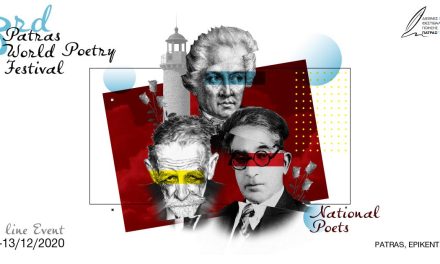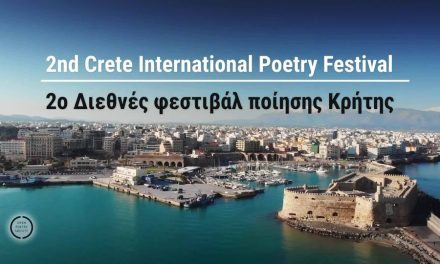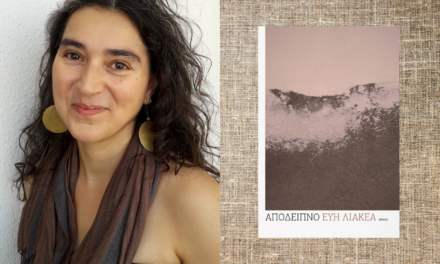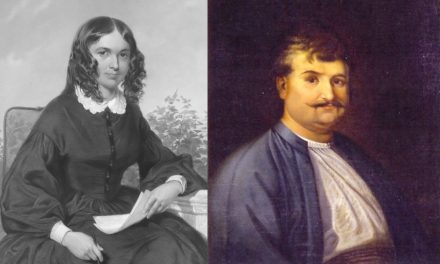Goethe-Institut Athen is particularly active in the field of culture since it promotes arts in every discipline by providing funds that enable both newcomer and professional artists to carry out residences and projects in Germany or abroad. At the same time, Goethe’s translation funding programme has proved a “success story” given that it has provided financial support for the publication of roughly 7,000 books in 45 different languages.
Reading Greece* spoke to Nikoleta Stathopoulou, Head of the Information & Library Department, about the cultural projects and initiatives currently implemented by the Institute, the scope of its translation funding program and the prospects ahead, as well as the pivotal role of cultural institutions in fostering deeper understanding between different cultures and acting as cultural ambassadors between countries and peoples.
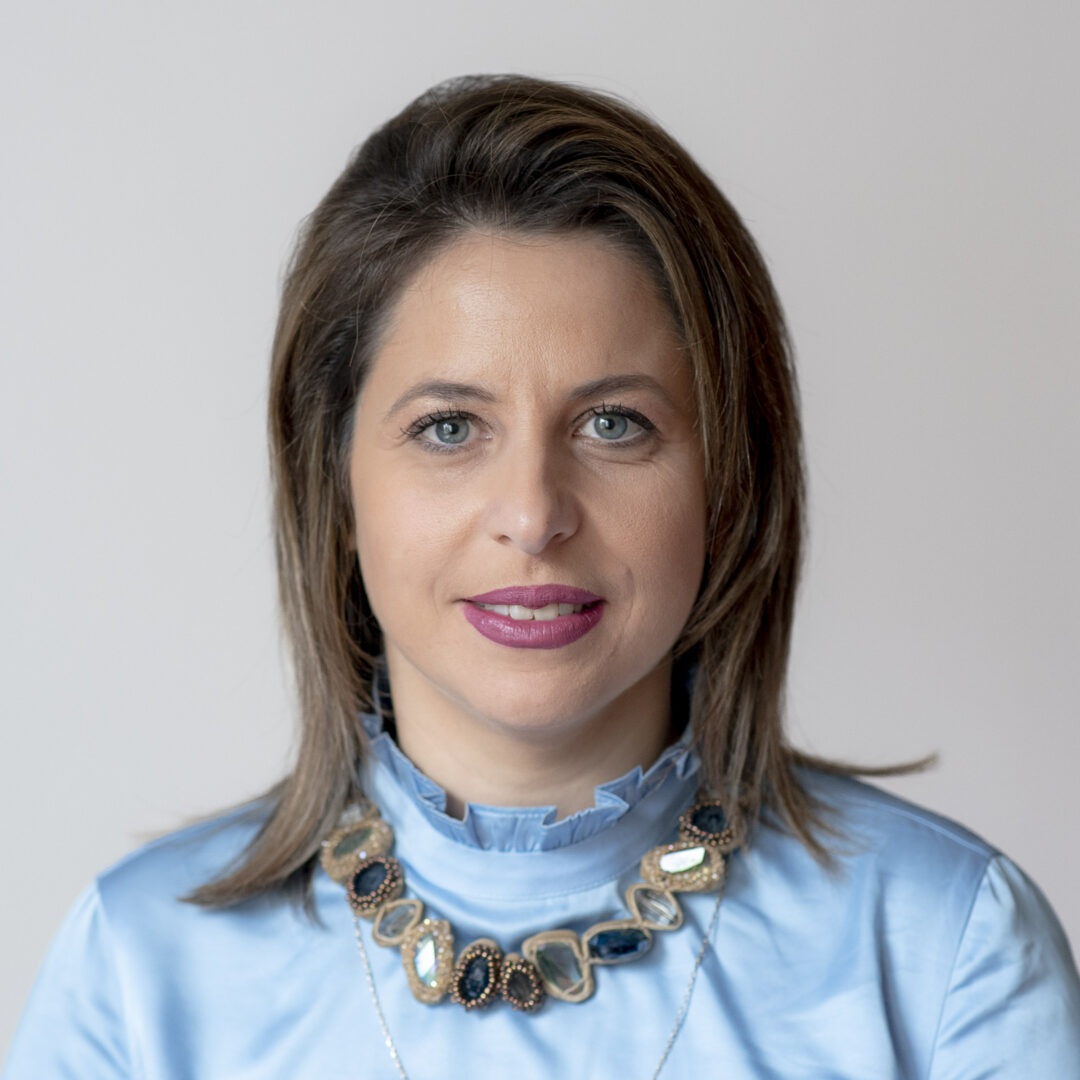
©Vangelis Patsialos
Goethe-Institut Athen is particularly active in the field of culture since it promotes arts in every discipline by providing funds that enable both newcomer and professional artist to carry out residences and projects in Germany or abroad. Tell us a few things about the cultural projects and initiatives currently implemented by the Institute.
The activities of the Goethe-Institut Athen are not only centered around its own venue as an event space but are primarily focused on collaboration with other cultural institutions in Athens and throughout Greece. The main goal is to promote German-Greek cultural dialogue. Currently, many interesting projects are underway, highlighting various facets of culture. The first project I would like to mention is the multimodal festival “Noisy Words.” Noisy Words is a festival dedicated to sound, noise, and words, curated by Evi Nakou and organized in collaboration with KET TV Control Centre. Through a series of workshops, performances, presentations, and discussions, we collectively explore the loud spaces we inhabit and the noise between our bodies—spaces where sound and language twist, bend, and distort.
The multimedia exhibition BEYOND DESTRUCTION: Rhodes, Thessaly, Evros is the current project of the program department. In 2023, Greece was struck by devastating natural disasters, including wildfires and floods, which claimed numerous lives, destroyed homes, and irreversibly altered landscapes. Months later, photographer Ilir Tsouko and journalist Anja Troelenberg traveled to the affected regions of Rhodes, Thessaly, and Evros to document the long-term aftermath. They captured both the despair of those impacted and their resilience and hope in an environment forever changed.
The results of their work—photographs, videos, and stories—are showcased in an exhibition at the Goethe-Institut in Athens. The exhibition not only highlights the destruction but also explores how disasters reveal critical societal realities, presenting both challenges and opportunities for renewal.
Ilir Tsouko is a visual storyteller focusing on migration, social issues, and climate change, with work featured in major international outlets such as The New York Times and The Washington Post. Anja Troelenberg is a German writer reporting on environmental and social topics in Southeastern Europe, contributing to media like ARTE and Deutschlandfunk.
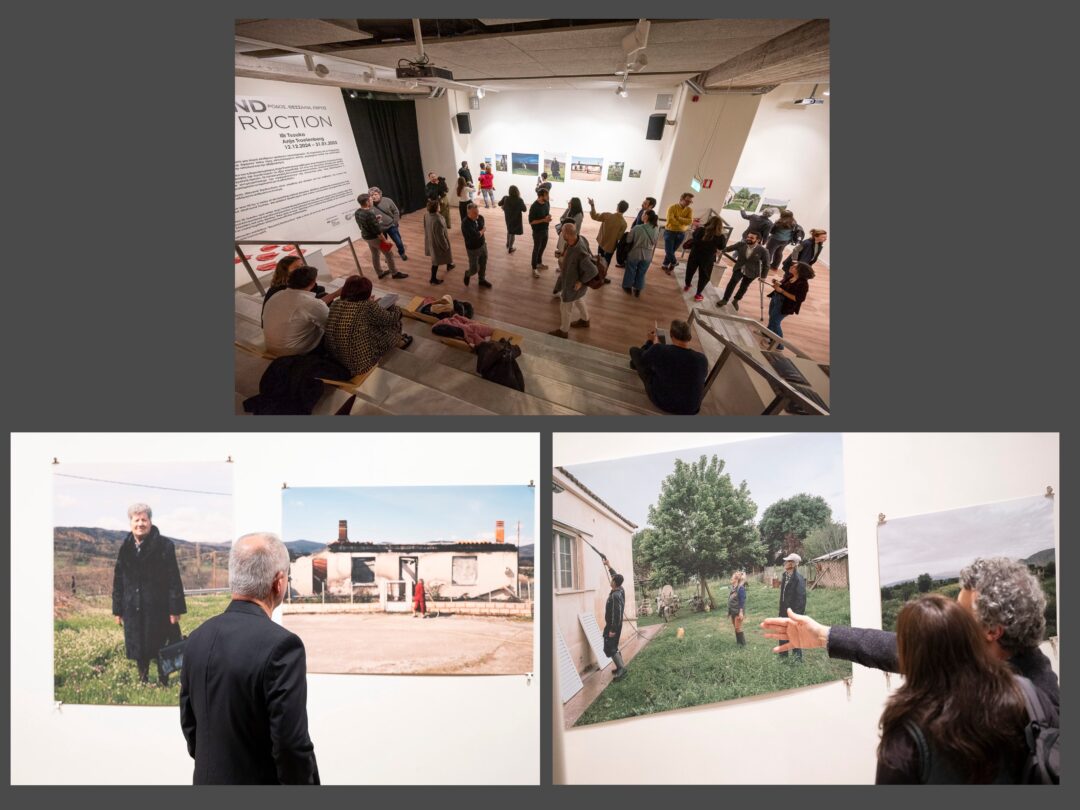
©Vangelis Patsialos
As far as literature is concerned, since its inception 500 (50 not 500) years ago, Goethe’s translation funding programme has proved a “success story” given that it has provided financial support for the publication of roughly 7,000 books in 45 different languages. Which is the scope of the program, what results has yielded so far and which are the prospects ahead?
The Goethe-Institut Athen oversees literature and translation promotion for all of Greece. The translation program facilitates access to contemporary German-language literature, non-fiction, and children’s and young adult books for an international audience. We advise Greek publishers on-site about funding opportunities for translations from German to Greek and provide insights into current trends in contemporary German-language literature. To our great delight, 52 titles have been translated into Greek in recent years, making them accessible to Greek readers. The number of supported titles confirms the significant intensification of literary exchange as well as the Goethe-Institut’s network with translators, publishers, and other literary intermediaries. The network that has emerged, along with the trust built, is of particular importance. This bilateral approach will continue to be promoted, not only through exchanges with representatives from the publishing industry but also through the publication of further works in the Greek language.
Which are the main challenges you are faced with while introducing German-language literature to Greek readers? And in turn, does Greek literature has the potential to reach German-speaking audiences?
The promotion of German-language literature to Greek readers is made challenging by linguistic and cultural differences, as well as economic hurdles, but it is not impossible. At the same time, Greek literature has the potential to reach a German-speaking audience, particularly through themes that are relevant to both cultures and the growing interest in international literary voices. Supporting the bilateral literary exchange between Germany and Greece could be key to overcoming these challenges and making the literary works of both countries accessible to a broader audience. However, this potential can only be fully realized through targeted funding, translation programs, and cultural exchange platforms.
Among the Institute’s initiatives is “Let’s Talk”, a network and professional programme for publishers from Southeast Europe and Turkey. What’s the story behind this venture of yours?
Since 2020, a successful networking and professional program for Greek publishers and agencies has been running in Athens under the motto “Let’s Talk!” It started as a preliminary program, then as a framework program, and eventually became a follow-up project to the German-language Guest of Honor appearance at the Thessaloniki International Book Fair 2021. After the first edition, which was entirely digital due to the pandemic in 2020, the Guest of Honor presentation at the Thessaloniki Book Fair 2021 provided an excellent opportunity to strengthen relationships between German and Greek stakeholders. In 2022, we continued “Let’s Talk!” in person in Athens, with a live stream enabling participants from outside Athens to join, thereby increasing the program’s reach. Last year, we expanded the program by including publishers and agencies from Southeast Europe and Turkey, creating a platform for new, cross-border collaborations. The Frankfurt Book Fair and the Hellenic Foundation for Culture are our cooperation partners for the Let’s Talk! series. The goal of networking and professional programs is to achieve international networking, knowledge transfer and professional development, cultural exchange, sustainability, and freedom of expression.
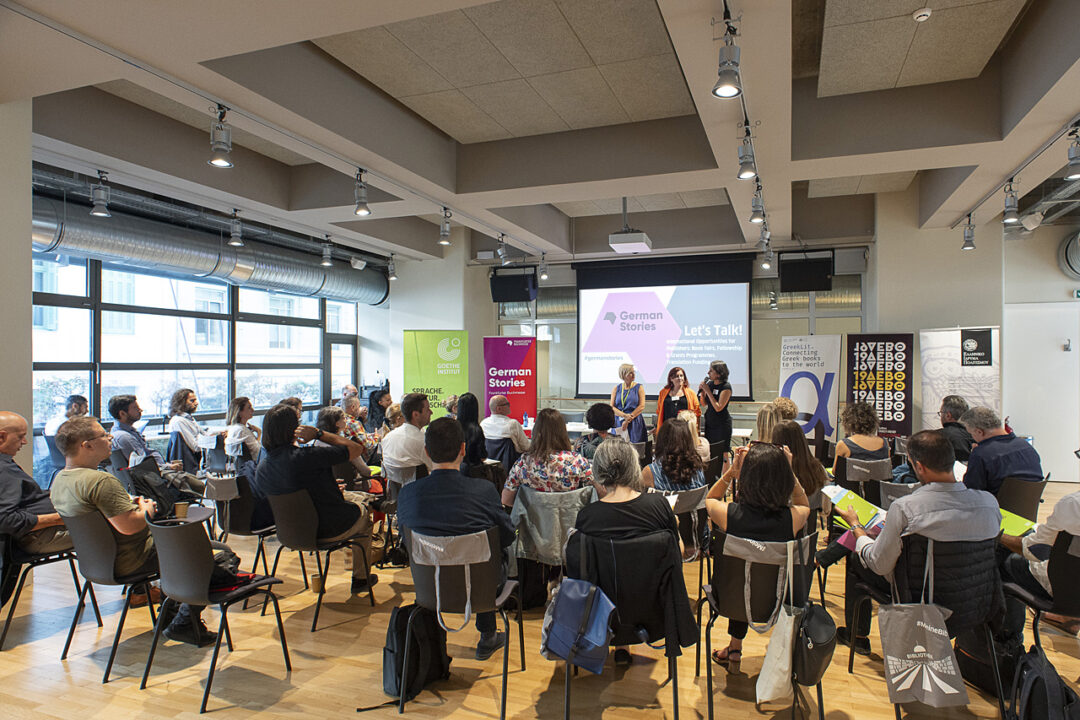
An institution launched in 2022 (2021 not 2022) by the Goethe-Institut in collaboration with the Hellenic Foundation for Culture, the Greek Visual Communiation Design Awards, the Stiftung Buchkunst and the Franfurter Buchmesse, the Young Book Designers Award aims to detect new original ideas about the printed book as an object of design and aesthetic creation? How important are such initiatives in encouraging modernity in a medium that is both traditional and modern?
The Young Book Designers Award was established in 2021 when German-language literature was the guest of honor at the Thessaloniki International Book Fair, in collaboration with the Goethe-Institut. The competition is aimed at designers, typographers, publishers, and creative book project producers who propose particularly innovative and contemporary approaches to the further development of book design.
Since then, innovative works by young Greek creators are selected and awarded each year. The winners have the opportunity to travel to the Frankfurt Book Fair, the most important book fair in the world, to present their work—starting in 2025, also at the Leipzig Book Fair—attend events related to book design, and network with industry professionals. The Young Book Designers Award has become not only a flagship for new Greek design, page layout, and typography, but it also aims to support young creators in their early steps and connect them with publishers and creators internationally. It is also particularly important to promote the award as a way to foster innovative and contemporary approaches to the further development of the book as a medium, while supporting new creators in their early careers in book design, typography, and layout. The award also seeks to provide equal opportunities for recognition amid professional competition.
More generally, how pivotal is the role of cultural institutions in fostering deeper understanding between different cultures and acting as cultural ambassadors between countries and peoples?
The Goethe-Institut promotes German culture at its international locations and serves as a forum for encounters between artists, scholars, and intellectuals from both countries, while also providing space for experimentation and innovation. In addition, we focus on current topics and issues related to relevant questions of art and society in the broader European context. The cultural program reflects a wide range of themes from scientific and aesthetic discourse across various fields such as literature, philosophy, cultural studies, film and media, visual arts, architecture, design, music, dance, and theater, with an emphasis on current trends. With this concept, the Goethe-Institut Athens not only succeeds in presenting outstanding work, but also fosters dialogue among all participants and interested parties, thereby creating lasting cultural networks.
*Interview by Athina Rossoglou
** INTRO photo © Vangelis Patsialos
TAGS: LITERATURE & BOOKS | READING GREECE

